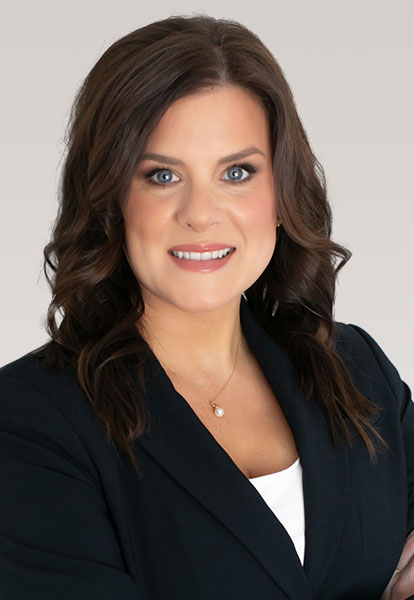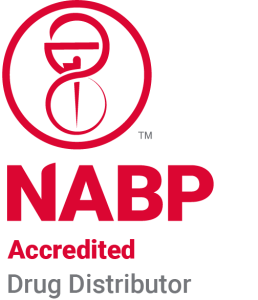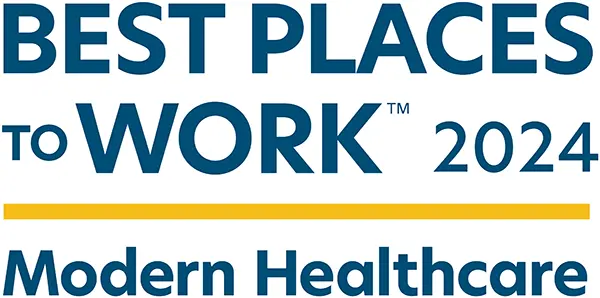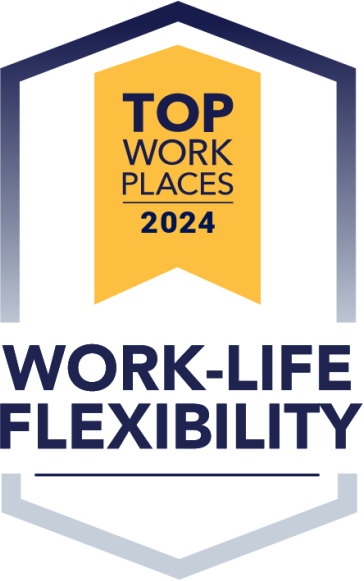Samantha Pomeroy, Director of Pharmacy Services sat down with Happier at Home CEO Deborah Marcello to discuss why a Happier at Home health franchise opportunity is the right move for community pharmacies.
The surging demand for comprehensive home health care services is happening in your community. Pharmacies can unlock the exceptional business potential with a Happier at Home franchise opportunity. Position your pharmacy as a go-to authority for non-medical assistance in your community. Keep patients at home and independent for longer and access a new income source.
Presented by:

Samantha Pomeroy is a pharmacy professional serving as the Director of Pharmacy Services for IPC. With a career spanning over 20 years working as a Certified Pharmacy Technician and Director of Operations, she brings a wealth of experience and expertise to her role. She tirelessly works alongside our members to identify and implement innovative business solutions that elevate their practice and enhance profitability. Her commitment to the success of community pharmacies is unwavering, and she finds fulfillment in providing personalized consultations to help businesses flourish.

Deborah Marcello is the founder and CEO of Happier At Home, a home health care company with franchises across the country, and the founder and host of the podcast “Happier at Home PRN”. She serves as 13WHAM, the Fox, Good Day Rochester, and CW Rochester’s geriatric expert, making weekly appearances to educate the public on issues faced by our aging population and their families.
Awards include 2013 Up and Coming Businesswoman of the Year from the Rochester Women’s Business Council and a winner of Business Simulation Scholarship for the Executive MBA Program from the University of Rochester’s Simon Graduate School of Business. She is a past Membership Ambassador for the National Association of Professional Geriatric Case Managers, member of the Board of Directors for the Greater Rochester Area Partnership for the Elderly and member of the Catholic Family Charities Advisory Board.
More Webinars
Introducing Olympia Pharmaceuticals to the IPC Vendor Advantage Network!
Nick Gutgesell2025-06-18T11:09:36-06:00June 18, 2025|
Top 5 Tips when Terminating a Problem Employee
Nick Gutgesell2025-04-30T12:08:03-06:00April 30, 2025|
Expand Your Pharmacy’s Reach with GeriMed’s Long-Term Care Solutions
Nick Gutgesell2025-04-29T13:15:13-06:00April 29, 2025|
Transcript
Samantha Pomeroy 0:29
Hello everyone and welcome to IPC’s Vendor Advantage network vendor highlight for the month of July with happier at home.
My name is Samantha Pomeroy.
I’m director of pharmacy services here at Independent Pharmacy cooperative and today I am joined by Debbie Marcello.
She is founder and CEO of Happier at home, so thank you so much, Debbie, for joining us and taking the time to talk with us and our Member pharmacies about home health care.
It is a rapidly growing industry and what the opportunity is for our Member pharmacies to bring this to their community.
So thanks for joining us.
Deborah Marcello, RN 1:11
Oh, thank you so much, Samantha, for having me.
It’s a pleasure and an honor.
Samantha Pomeroy 1:16
Before we dive into happier at home services umm Debbie, I would like for you to tell our Members a little bit about how happier at home was started.
You’re an RN and I really enjoyed the background that you have shared with me in and using a gap in care.
I believe it was with your mom and how you’ve kind of filled that need in your community.
So share a little bit about that before we get into the services.
Deborah Marcello, RN 1:43
Yes.
So if you asked me 20 years ago if this was going to be my path or my purpose in life, I really would never have known.
I always have been very entrepreneurial, but at the time I was working as an ER and trauma nurse in our areas, largest trauma hospital and my mother on a simple drive home from work that she had driven for 30 years.
Got lost and so as a result of that, we learned that she had glioblastoma, multifocal, five brain tumors and in our experience of keeping her at home before she passed six months later, we had to have a it was a reputable, umm home care company.
Come in and just help for about an hour a day.
Something like that.
And unfortunately, we were met with caregivers who really weren’t engaged.
They had a different caregiver coming every day.
Samantha Pomeroy 2:51
And.
Deborah Marcello, RN 2:54
They would change the schedule without talking with us or they would not.
Not even show up.
So I saw how terrible the system was and that the delivery of care was based on what was convenient for the Home Care agency.
Samantha Pomeroy 3:01
Right.
Deborah Marcello, RN 3:12
Trying to just jam in as many visits as they could for one caregiver.
So before my mother passed, I even told her I said this is really ridiculous.
I, as an advocate and a registered nurse, can speak up for you and for our family.
But what happens with the families who don’t speak up or don’t have that advocate that will, and make sure that their care is high quality and to make sure that continuity of caregivers is there?
I told her I’m going to start a business in in home care and she said she knew it was gonna be great.
And it is.
Samantha Pomeroy 3:56
That’s amazing.
Thank you for sharing that with us.
I’m actually going through that right now with my grandmother and you know it’s hard.
It’s very, very hard.
So the fact that you saw that need and you stood up and are that advocate kudos to you.
Deborah Marcello, RN 4:07
That’s.
Samantha Pomeroy 4:12
So let’s get into the services.
Deborah Marcello, RN 4:13
Thank you.
Samantha Pomeroy 4:15
What services does a happier at home for range has offer?
And really, how do you see this fitting into the independent pharmacy slate space?
I have your soda, but I’m discussing the services.
So.
So what are the services?
Deborah Marcello, RN 4:30
So as a happier at home – owner, the pharmacy owners?
Uh would also provide these services.
Umm, the four main portions of it are companion care, personal assistant services, which is a little more hands on care than the companion care and care advocacy, sometimes known as case management.
Deborah Marcello, RN 4:55
But it is a non medical care advocacy or case management and also medication management solutions and under each of those categories there are different types of services.
So the companion care we can look at as maybe dementia care, making sure that whoever they’re caring for at home is safe and gives that family member a little break to get away, to take care of themselves as well.
They can do light housekeeping, meal planning and preparation, medication reminders, and then when we look at personal assistant services, it may be help with nutrition, turning and positioning, bathing hygiene and things like that.
The care, because he really is something that if you think about the number of families who are living far from where their loved one is, their elderly parents, for example.
Deborah Marcello, RN 5:56
So often they have a hard time trying to manage their life and their children’s lives, as well as trying to take care of their aging loved one.
So the care advocacy we step in as a kind of like a surrogate child for that person, making sure that we’re arranging medical appointments, perhaps attending the medical appointments, making sure that we’re a liaison between the family member and the client to help them to achieve their goal.
And their goal usually is to remain in their home as independent as possible, and one of the other services is that medication management solutions.
So as the home care company, we would go in and determine what the best way to deliver those medications are deliver.
Samantha Pomeroy 6:39
Umm.
Deborah Marcello, RN 6:51
I mean, for those medications to be administered in the home, you know, sometimes it’s compliance packaging and the person will remember to take them.
But we have solutions for those who have dementia and won’t remember to take those medications.
So we’ve really managed to be able to keep patients in their home where in the past they would have had to move to us an assisted living just because of needing that medication management.
And I mean really this does I I, you know, I kind of asked how do you see this fitting into the independent pharmacy space but a lot of these things you know we’re doing maybe not necessarily going to the homes.
So I mean, I see it fitting in in pretty well as that been your experience?
Deborah Marcello, RN 7:39
It has been, and I’ll tell you when, when I first started franchising about five years ago, one of my most successful franchisees is a pharmacy owner, independent pharmacy owner in Buffalo, NY and I looked at why that is.
Samantha Pomeroy 7:49
Umm.
Deborah Marcello, RN 7:55
And as pharmacy owners, you’ve created this.
Reputation in your community.
You’ve made these connections with the family members with your patients and customers.
And so I look at the pharmacy owners as really being a resource for the community and I feel that it’s imperative that you’re able to offer all different kinds of services to be able to help them remain in their own home and independent.
Deborah Marcello, RN 8:29
So having patients walking in your front door all the time, having their family members coming in, even if you don’t have a retail location, the long term care supplying of the medications is really you have these connections with all of these referral sources that you are a resource for them.
Samantha Pomeroy 8:37
When you.
Deborah Marcello, RN 8:54
You are helping them to be able to keep their patients in their home and safe as far as even transitional care units are.
Rehabs them discharging patients.
You help with a safe discharge home, so you have the connection with the Community and your reputation and you have the connection with all of these medical professionals that are potential resources for referrals to you.
So This is why I saw that independent pharmacy owners really start off quickly and do a great job being able to ramp up their business quickly with their patients in their homes.
And then also now with long term care at home with the medications it they just work so closely hand in hand.
Samantha Pomeroy 9:48
As in here, yeah.
Deborah Marcello, RN 9:48
So you’re, you know, just building up your patients through happier at home and some of them may be able to be receive their medications through LTC at home.
So there’s, there’s just so many synergies, whether it’s creating immunizations that you can create, creating programs of immunizations, point of care testing, even if you do DME, these types of things are feeders for each other.
Deborah Marcello, RN 10:19
It’s a feeder for your happier at home patients.
Umm to increase your patient base but then also having a patient base of your happier at home clients can be a feeder to all your programs and services of your pharmacy.
Samantha Pomeroy 10:34
Right.
Deborah Marcello, RN 10:35
Cool.
Samantha Pomeroy 10:35
Yeah.
So do you help?
UM, do you help the pharmacy?
Kind of kind of look at their community and determine if this is an opportunity.
If there’s a need, you know, with their patient demographic in their community, do you help with that?
Deborah Marcello, RN 10:51
Yes, it’s part of our discovery process.
So if if you’re interested if someones interested, they would initially reach out to us and I know on your IPC website you have a form that they could just fill out and so that you’re aware that they are interested and then we take it from there.
Samantha Pomeroy 10:53
OK.
Mm-hmm.
Deborah Marcello, RN 11:12
So one of the guys on our team, Dave, he will talk with you initially help you to understand what the business models like and make sure this is a good fit.
And then the next step would be talking with me about your territory, your potential territory.
Samantha Pomeroy 11:29
Right.
Deborah Marcello, RN 11:30
So this is what helps us to show and to determine that it is a viable option for you as a business.
So in developing those territories, we look at making sure that you have enough population and in that territory that could support a private pay source of revenue for you.
So that’s by large what happier at home is is your revenue is private pay, no insurances, which is great.
Umm, so we look at the general population of being at least 300,000.
Deborah Marcello, RN 12:05
We look at the senior population of at least 40,000 and then we’re also looking at the average household income in general and those that are 65 and older.
So I’ve had people come to me so many times and say my areas, so rural and we have poor areas in it.
Samantha Pomeroy 12:23
Right.
Deborah Marcello, RN 12:26
We make sure that the territory is going to support your business and I’ve heard from multiple pharmacy owners that our franchisees of ours also that because there are rural areas that there’s such a need for those services that other companies just aren’t going in there.
Samantha Pomeroy 12:45
Yeah.
Deborah Marcello, RN 12:49
And if you’re doing delivering, you have these connections already.
So it’s really it’s really a great synergy.
Samantha Pomeroy 12:59
OK.
And you know, we just IPC, we were just at McKesson idea share and we had a lot of Members that that joined us there and you know home health care and non-traditional pharmacy business styles, what was a big topic that was consistently brought up.
Deborah Marcello, RN 13:00
Yeah.
Samantha Pomeroy 13:18
So I’m really happy to see that our member pharmacies are truly future readying their business and branching out and really becoming that total healthcare destination for their community.
So let’s discuss some of the benefits of expanding into home health care with Happier around.
Deborah Marcello, RN 13:36
Sure, it is a growth strategy for your pharmacy owners.
Samantha Pomeroy 13:39
Mm-hmm.
Deborah Marcello, RN 13:41
So at you would actually set up a separate entity, but it would be owned by whomever.
If it’s the pharmacy owner, then it would be owned by the pharmacy owner, but being able to have this separate entity, you’re able to have a larger profit margin and that and stay out of regulation that has to do with the pharmacy.
So and you know, Speaking of regulation, depending on your state, there may or may not be licensure that’s required, but we would help you through that.
Deborah Marcello, RN 14:15
But another benefit of expanding, as I said, is having that private pay source of revenue by large home or excuse me, health insurance doesn’t cover home care unless it’s more episodic.
Deborah Marcello, RN 14:30
If they’re being discharged after a hospital stay or surgery, then they may need a short-term care that may be covered by health insurance.
But what we’re looking for is those people we’re going to have as patients.
Long term, our average length of stay is about two years for each of our patients.
Samantha Pomeroy 14:52
OK.
Deborah Marcello, RN 14:54
So, you know, looking at the private pay as as opposed to having to be dictated to by the health insurance companies is a wonderful thing.
Umm.
And it is covered by long term care insurance.
There’s more and more long term care insurance policies out there and we help step you through how to do that and it’s seamless.
It’s very easy.
They usually have portals for you to just submit the schedule and the caregivers activities of daily living List, and then also being that you are the hub in your community, you really should be the senior.
Samantha Pomeroy 15:29
Mm-hmm.
Deborah Marcello, RN 15:39
The authority in senior care in your community, so having this business will help you to establish yourself as that.
We also look at all of the referral sources, as I said, for from doctor’s offices that you may deal with assisted living, independent living facilities, transitional care sniffs, all of those, and we go through all of this in our training.
We have very extensive training.
Umm.
And then also being able to have a referral to your pharmacy, you could make specials for your patients, happier at home and, you know, offer your compliance packaging to them or whatever else you may offer.
Deborah Marcello, RN 16:28
And of course, you’re doing a service for your community by enabling your the seniors in your community to be able to remain in their home.
As you know, if you have a safe discharge home, if you have someone in your happier at home company, a caregiver that’s going to help someone after discharge, that’s going to help to reduce the readmissions as well.
Deborah Marcello, RN 16:56
So it’s a no brainer for physicians for hospital discharge planners for transitional care units when they’re discharging patients to refer to you.
It doesn’t cost the healthcare system anything.
It will cost them money if they don’t refer to you with readmissions, and then also of course, medication noncompliance is a huge issue.
Deborah Marcello, RN 17:24
It’s one of the number one reasons people are bounced into the hospital or into sniffs, so really being able to help that increase medication compliance, you’re helping the patient and you’re helping the healthcare system itself.
Samantha Pomeroy 17:41
Right.
You know, one thing that I have really enjoyed hearing from the Members that we do have with, with happier at home is just, you know, all of the education, the training and the support that you guys provide.
Deborah Marcello, RN 17:42
Yes.
Samantha Pomeroy 17:55
I mean, your videos are phenomenal.
You do a wonderful job with that.
So we’ve really appreciated that.
So IPC has partnered with happier at home to bring this not only to our GPO members, but to our warehouse customer, our warehouse member base as well.
So it’s a great offer to participate.
We, with our Members, with your membership, with IPC, you get 10% off of the franchise fee and you also get six months of rain trust marketing for free, which is huge.
So a lot of times pharmacies will bring in services, but it’s really getting the word out into the community.
You know what are the services?
So can you kind of elaborate just real quickly on what that marketing looks like?
Deborah Marcello, RN 18:42
Sure.
We have a really robust marketing plan.
And So what we do for our franchisees is our search engine optimization is AI enabled.
So we it, it is state of the art SEO.
Deborah Marcello, RN 19:04
So that’s one of the things.
So each of your websites we optimize and we make unique content for it.
So we’re not, uh, cannibalizing each other on Google, but then also we create your happier at home, Instagram, LinkedIn and Facebook pages.
Samantha Pomeroy 19:15
Right.
Deborah Marcello, RN 19:24
With those we post content, we create the content and post twice a week and so those that helps to keep your happier at home company out in, in the public and in front of their eyes.
So if they don’t need services at that moment, then your top of mind all the time.
Uh, there are marketing program is is really incredible.
The I know you referenced the videos that I make.
I also go on to our local Fox News Channel every Monday just to educate the community about issues having to do with caregiving or seniors and those short three to four minute appearances we use for email campaigns for our franchisees.
So we manage that for you as well.
Samantha Pomeroy 20:16
That’s great.
Deborah Marcello, RN 20:19
So all of your customer base through your pharmacy, you’ll be able to use that customer email list to tell them about your grand opening.
And then it’s not asking for a sale.
You’re not just blasting them with.
Hey, try us.
We really just want you to be known as that scene authority and senior care and educate your public and then as it is a service that sells itself, you know, when I had my local company, it was the assessment is supposed to be kind of like the sales call, but you’re going there and you’re showing your customer or patient where their deficits lie and how you can help them stay home instead of moving on to an assisted living or skilled nursing.
Deborah Marcello, RN 21:14
So you’re really doing a great service and it it doesn’t become a sales call.
It’s how are you going to help that person?
Samantha Pomeroy 21:24
Right.
And that’s really important for for our pharmacy owners, you know just you know that they, like you said they have those relationships and they’re so many now that are wanting to grow old at home.
Deborah Marcello, RN 21:25
Yeah.
Samantha Pomeroy 21:37
So how can we incorporate this into our business as an independent pharmacy?
And I think I think it’s a perfect fit, Debbie.
Thank you so much for joining us today and being, you know, a great partner.
We’re very happy to partner with you.
You’ve taken great care of our Members, so there is a there is a link here on this last screen for happier at Home franchise opportunity.
If you’re interested, please go to that link, fill out the information and we will get back with you.
You know, with with more information on the opportunity and answer any questions that you have.
So thank you so much, Debbie.
We really appreciate the time today and thank you to everyone that watched.
We hope you have a good day.
Deborah Marcello, RN 22:21
Thank you so much, Samantha.







